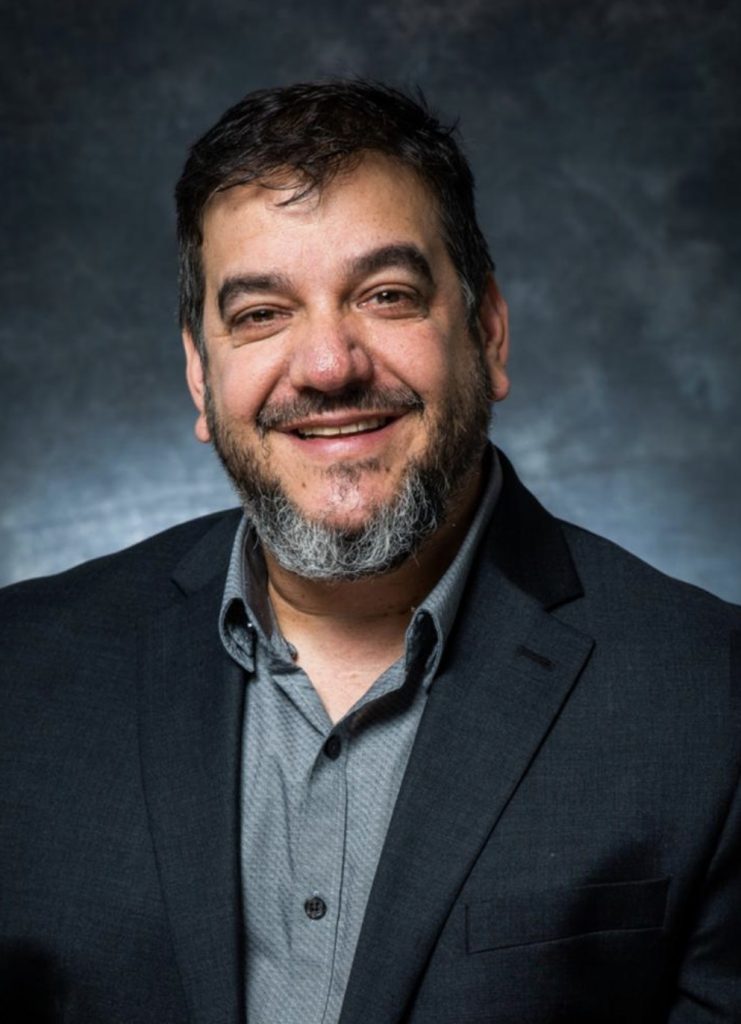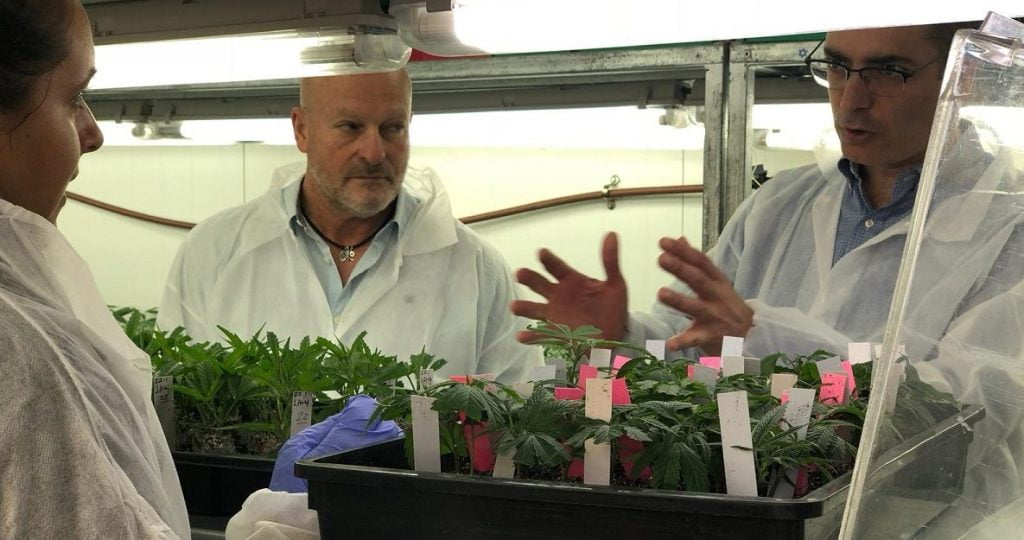This article is a guest post on NoCamels and has been contributed by a third party. NoCamels assumes no responsibility for the content, including facts, visuals, and opinions presented by the author(s).

Saul Kaye is the founder and CEO of iCAN: Israel-Cannabis and a global cannabis ecosystem thought leader. As an industry advisor to the Medical Cannabis caucus of the Knesset and a licensed pharmacist with 25 years experience, Saul established iCAN in 2015 with the goal of changing the cannabis conversation and promoting greater access to medical cannabis, while showcasing Israel’s unique contributions to this field. iCan established the world’s leading cannabis summit, CannaTech – an industry event that brings together the biggest names in cannabis to present significant and groundbreaking contributions to the global market. Saul regularly consults with governments and regulators on cannabis policy change including in the EU, Gibraltar, UK, Ireland, Australia and Israel. To subscribe to the iCAN newsletter, visit israel-cannabis.com
The global state of legal cannabis has shifted rapidly over the past few years. After decades of strict prohibition, the potential medicinal benefit of this reviled and revered plant is finally coming to light.
In news outlets across the world, headlines feature the next big canna-business buy out, the most recent superstar to join the cannabis space, and the life-changing clinical research proving the plant’s healing potential.
Often, these headlines also refer to Israel, an established world leader in cannabis research, technology, and innovation.

While in most countries, medical research into marijuana is extremely difficult, Israeli researchers enjoy relative freedom in partnership with the government and local legal cannabis producers. Since legalizing medical cannabis in the 1990s, Israel has collected nearly 30 years’ worth of indispensable data on the efficacy of cannabinoids – the active components of cannabis – in treating a wide range of health conditions, from PTSD to endometriosis.
SEE ALSO: 7 Israeli Startups Taking Medical Cannabis Into The 21st Century With Innovative, ‘Smart’ Devices
Israel also remains one of only a handful of countries in the world with a government-supported medical cannabis program. The scientific rigor, high-quality product, and permissive regulatory environment that characterize Israel’s cannabis research program are now attracting interest and investment from the world’s largest cannabis companies.
As the “Startup Nation,” Israel’s biggest commodity is its intellectual property (IP). Over the past five years, iCAN: Israel-Cannabis, a cannabis business incubator, accelerator, and B2B conference platform, has reviewed over 300 startups and 50 items of IP in the cannabis space. The concentration of talent and growth potential makes Israel highly attractive to seasoned investors seeking fresh opportunities, and young Israeli “cannapreneurs” are rising to the occasion.
While cannabis crops are grown on a larger scale elsewhere in the world, Israeli tech solutions, including unique extraction techniques, targeted formulations, and novel delivery platforms, are in high demand. Furthermore, Israeli cannabis-specific labs-for-hire partner with US investors, offering cost-efficient access to FDA-standardized clinical research facilities without the roadblocks of American drug trial registration.

Israel’s technological leadership in cannabis has generated a range of leading-edge, market-ready products. At iCAN, we closely follow these developments, offer guidance to fledgling cannabis businesses, and showcase Israeli cannabis tech to global investors. From groundbreaking inhalers, sublingual sprays, dissolvable oral strips, and even tampons, to scalable grow technology, hi-tech cannabis containers, and cannabinoid nanoencapsulation for enhanced efficacy, Israel is – without a doubt – leading global cannabis innovation into the future.
Here are some examples:
A challenge facing cannabis producers is crop monitoring and plant quality control. One Israeli company, 3nitor, has developed a crop quality monitoring platform for medical cannabis cultivation. Leveraging machine learning and AI, 3nitor optimizes yield by enabling early detection of stress, disease and pests that can damage the plant. 3nitor’s patent-pending automated system monitors environment, growth and development while the platform’s AI analysis and prediction gives cannabis growers critical insights to improve yield and plant quality.
Sign up for our free weekly newsletter
Subscribe
Another Israeli-developed cannabis monitoring technology is HiGrade, a mobile accessory and app offering instant cannabis testing using any smartphone camera. When the HiGrade scope is attached to any device, the camera becomes a high-resolution microscope capable of analyzing and diagnosing cannabis plants in real-time and at any stage of development using cloud-based algorithms. HiGrade is capable of evaluating plant potency, nutrient levels, presence of pests or mold, and predicting optimal harvest time, making growing high-yield and high-quality cannabis production radically easy for even large-scale grow operations.
Israeli tech is also revolutionizing how cannabis producers ensure crop consistency and quality while conserving money and resources, but botanical extraction and formulation expertise is also a major blue-and-white contribution. ReaGenics is an Israeli company developing a technology to bypass the need to grow plants at all. Their novel plant cell bioreactor process enables the mass-scale multiplication of pharma-grade, botanically-derived cannabinoids to produce consistent, controllable, and patentable formulations. This will facilitate the introduction of new, safe, and effective drugs that will reach countless patients globally.
One example of a cannabinoid-based medication with the potential to improve the lives of everyday people is iCANsee. This range of ocular health treatments is harnessing nanotechnology to deliver active cannabinoid medicine into the eye, a major challenge when treating vision and eye disorders. A first-mover in combining nanotechnology with cannabinoids for eye treatment, iCANsee was recently awarded a NOFAR grant by the Israeli Innovation Authority.
Novel cannabis-derived therapies are also having a serious impact on global health, with numerous countries now permitting cannabinoid drugs to treat epilepsy, AIDS and chemotherapy-related symptoms, and muscular disorders, to name a few.
Much of this progress is thanks to Israeli research and innovation due in part to the reduced stigma against cannabis, both at the individual and institutional level. The patient population in Israel is large and constantly growing; in a small country, this means that nearly everyone knows someone who has been helped by legally prescribed cannabis.

But despite mainstream acceptance and widespread access, Israel’s program is currently at a crossroads as the country’s 40,000 medical cannabis patients struggle to get their prescriptions filled.
Recent regulation reforms have imposed stringent requirements that, while necessary, have forced major cannabis suppliers to severely limit supply or to close altogether, leaving patients stranded without medicine.
The cost and quality of medical cannabis are also a challenge under the new reform, with limits on the variety of available strains and a move to charging patients per gram instead of the previous global co-pay structure.

These changes have generated strong opposition in the patient community, and advocates are petitioning the Israeli Medical Cannabis Agency (IMCA) for a swift resolution. Although the reform was intended to make access to medical cannabis easier and safer, the transition has proved challenging, showing that while Israel’s innovative medical cannabis program is singular in the world, it is not without its flaws.
SEE ALSO: Israeli College Offers Bachelor’s Degree With Major In Medical Cannabis Studies
And while Israeli patients treated with medical cannabis face numerous obstacles, Israeli entrepreneurs, scientists, and innovators continue to shape the future of the global medical cannabis industry. It is my sincerest hope that this contradiction will soon be resolved and that Israeli ingenuity and excellence are given the opportunity for local and global impact.
Related posts

Editors’ & Readers’ Choice: 10 Favorite NoCamels Articles

Forward Facing: What Does The Future Hold For Israeli High-Tech?

Impact Innovation: Israeli Startups That Could Shape Our Future




Facebook comments